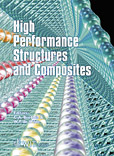Sustainable Composites From Natural Resources
Price
Free (open access)
Transaction
Volume
59
Pages
10
Published
2002
Size
559 kb
Paper DOI
10.2495/HPS020191
Copyright
WIT Press
Author(s)
R.M. Rowell
Abstract
In order to insure a continuous supply of natural agricultural resources, management of the agricultural producing land should be under a proactive system of land management whose goal is both sustainable agriculture and the promotion of healthy ecosystems. Ecosystem management is not a euphemism for preservation, which might imply benign neglect. Sustainable agriculture denotes a balance between conservation and utilization of agricultural lands to serve both social and economic needs, from local, national and global vantage points. Sustainable agriculture does not represent exploitation but rather is aimed toward meeting all the needs of the present generation without compromising the ability of future generations to meet their needs. It encompasses, in the present case, a continuous production of agricultural-based composites utilizing the natural resources, considerations of multi-land use, and the protection, restoration, and conservation of the total ecosystem. Agricultural resources are renewable, widely distributed, available locally, moldable, anisotropic, hydroscopic, recyclable, versatile, non-abrasive, porous, viscoelastic, easily available in many forms, biodegradable, combustible, compostible, and reactive. Plant fibers have a high aspect ratio, high strength to weight ratio, and have good insulation properties (sound, electrical, and thermal). The fiber structure is hollow, laminated, with molecular layers and an integrated matrix. It is possible to make complex shaped composites directly using fiber mat technologies. Successful application of this technology depends on the development of a fiber mat which will maintain its physical integrity until it is used to form a final product. Fiber mats can be made by physical entanglement (carding),nonwoven needling, or thermoplastic fiber melt matrix technologies.
Keywords





